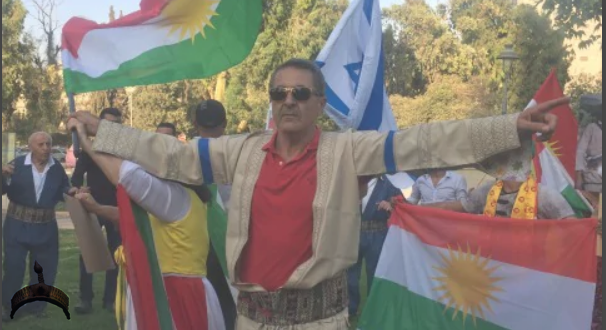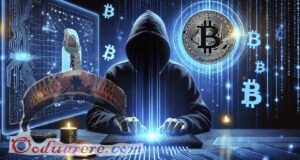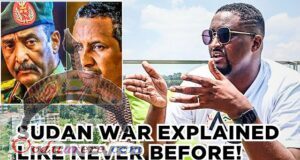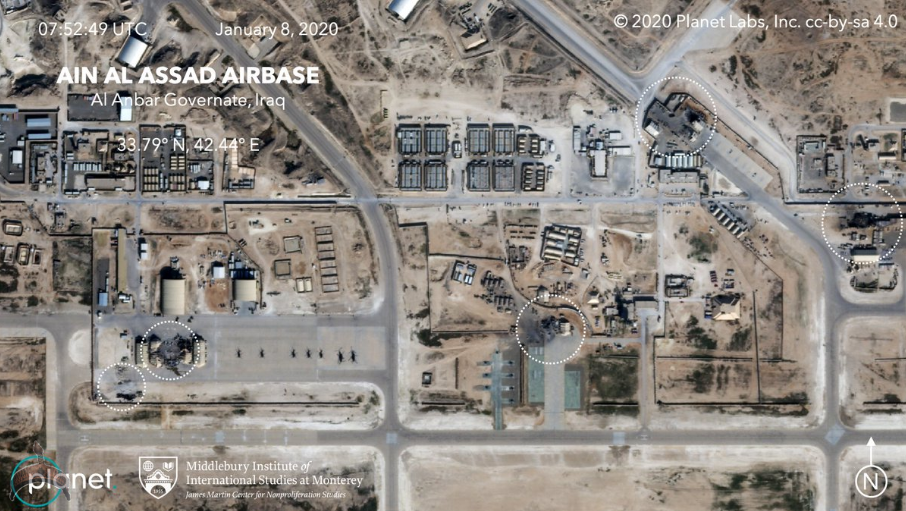By Aram Mirzaei
As predicted, the Kurdish referendum ended in a conflict over the disputed areas in northern Iraq, areas that have been occupied by Kurdish Peshmerga forces since the 2014 ISIL invasion of Iraq.
Throughout these weeks, Kurdish media close to Kurdish president Masoud Barzani have acted very much like their western counterparts, spreading atrocious lies about the Iraqi Army and Hashd Al Shaabi (PMU). One example was the ridiculous claim made by Kurdistan Democratic Party (KDP) affiliated media that the Iranian Revolutionary Guard and General Soleimani have a major role in the operations of the Iraqi government and Hashd Al Shaabi to retake Kirkuk. Here, the “independent” Rudaw Network literally engaged in fake news, when correspondent Hemen Abdullah, citing “anonymous sources” posted a two year old picture of Soleimani on twitter, claiming to prove his presence in Kirkuk. Needless to say, at the time of the Iraqi offensive, Soleimani was probably returning home after visiting Jalal Talabani’s grave to pay his respects.
The Barzani-affiliated media deliberately mentioned Hashd Al Shaabi and the Revolutionary Guards as the main parts of the operation of Kirkuk in an effort to divide and break the unity in Iraq, but also to attract American support, by claiming IRGC is participating in the offensive. The Barzani phalange highly counted on the support of the Western countries, despite the EU and Washington providing very little support prior to the referendum. All these efforts, including the false claims of high Kurdish casualties and Iraqi savagery, when in fact injured Peshmerga fighters were treated by Iraqi medics, are aimed at spreading a false narrative of the true nature of this conflict. In order to truly understand the dynamics of this conflict, it is essential to sort out the different parties to this conflict.
I have time and again argued that Kurds are very poorly understood both outside as well as inside the community itself. There are some facts about the Kurds that need to be addressed. 1- The Kurdish language is divided into several dialects that are not mutually intelligible. 2- All Kurds do not share the same religion, while many are Sunni Muslim, a sizeable minority are Shias, Yezidi, Alevi, Christians and even Jews. 3- All Kurds do not share the same ideology and dream of statehood. There are many Kurdish parties that seek different goals, depending on ideology, geographical location and history. The third point is very much relevant here (I will touch briefly on the first two points as well). So far, Kurds have been presented in the West (and by themselves) as an ideologically homogenous people who seek the same goal in all four countries that they dwell in.
But Kurds are very much as human as any other people and can be found both to the left and right in the political spectrum. In fact, Kurds have been very passionate about their ideologies, so much that they have engaged in several civil wars and internal conflicts over political differences.
Many of you have already heard and read about the (formerly) Leftist orientated PKK and YPG parties in Syria and Turkey. In the case of Iraq, most have probably also heard about the two major Kurdish parties (not the only ones) , KDP and PUK in the Kurdish autonomous region also known as the Kurdistan Regional Government (KRG). But few know about the differences between these two and their history of animosity towards each other.
The Kurdistan Democratic Party (KDP) has a long and complex history in the politics of both Iraq and Iran. Starting in 1946, in the aftermath of the Soviet-British occupation of Iran as a result of WWII, the leader of the Soviet-backed Republic of Mahabad, Qazi Mohammad announced the formation of the KDP in Iran. The Soviet Union supported both Kurdish and Azeri separatist causes in Iran and to some extent in Iraq as well because the monarchies of these two countries were UK/US-backed. It is here that Mustafa Barzani (Masoud Barzanis father) entered Iran from Iraq. Mustafa Barzani was on the run from Iraq after he had participated in his clan’s feudal uprising against the Iraqi monarchy who attempted to centralize the country.
Barzani and Qazi Mohammad maintained an uneasy, albeit necessary alliance, despite falling out several times during the short-lived era that the Mahabad Republic existed. Barzani, acting on feudal motives, attempted to create special privileges and dispensations for his tribe, something that Qazi Mohammad refused, arguing that it would harm Kurdish unity. As the short lived Republic fell back to government hands following the Soviet withdrawal later that same year, Barzani and his followers fled to the Soviet Union, seeking support, later he and his followers formed the Iraqi KDP.
The Patriotic Union of Kurdistan (PUK), came about as a result of a split within the KDP. Ibrahim Ahmad and Jalal Talabani, two prominent members had several falling outs with Barzani and the rest of the KDP especially during Baathist Iraq. After Abdul Salam Arif’s successful coup in 1963, Mustafa Barzani signed an agreement with Arif, one that did not include any mention of self-administration or autonomy, the whole point of the Kurdish struggle. This move nearly sparked a war as Ahmad and Talabani were infuriated while Barzani declared that any resistance to Baghdad would mean war against himself and his followers. Only a year later Barzani and his forces attacked Ahmad, Talabani and 4000 of their followers, driving them into exile in Iran.
It would still take roughly 10 years before the formation of the PUK would be announced. The Union was formed out of five separate political entities, most notably Marxist-Leninist parties from Iran and soon quickly attracted an intellectual and socialist support base as opposed to the feudal-tribal support base of Mustafa Barzani and the KDP. Tensions reached an all-time high in the 1990s when a full scale civil war broke out in the Kurdistan autonomous region between these two factions, with the KDP inviting Saddam Hussein to attack PUK forces. As a result, for more than two decades, Erbil and Sulaimaniya have been rival power bases in northern Iraq. The former is home to the Barzani clan, and the latter the base of the PUK.
Today, these tensions are no less visible as a potential Third Iraqi-Kurdish war is about to break out., which takes us back to the first part of this article. Among Iraqi Kurds today, there are different opinions on the referendum and the question of Kurdish statehood, but you won’t hear about any other opinion than the one presented by Masoud Barzani and his affiliates. Despite offering its support for the referendum last month, figures from the PUK and KDP have been at each others throats since Baghdad initiated its operation to reclaim Kirkuk and the surrounding areas.
The surrender of Kirkuk took place amid internal divisions among the PUK and KDP, with the PUK also suffering from an internal division itself due to Jalal Talabani’s recent passing away. Both parties command their own Peshmerga forces and while the KDP stood united in their support for the referendum, the PUK remained split on the issue as they were concerned with the consequences it would have for the KRG.
In a matter of 48 hours Kirkuk and surrounding areas were taken by Iraqi forces, as Peshmerga forces withdrew. According to Bafel Talabani, the son of Jalal Talabani, just before the Iraqi forces were moving to retake Kirkuk, a deal was reached with Baghdad to withdraw Peshmerga forces from the city. He went on to blast the decision of the Kurdish leadership to go ahead with a referendum on independence, calling it a “colossal mistake”. He also added that a a US proposal to postpone the referendum by two years should have been accepted and would have avoided the current situation, in which Iraqi forces have taken back control of areas controlled by Kurds since 2014.
And indeed he was right, at least in the sense that the referendum ended in a catastrophe for the KRG. The result of the referendum was not a 93% win but the loss of Kirkuk, Sinjar and other territories that the Kurdish forces had captured since 2014. The result was also that the KRG now faced immediate sanctions, shutting down of airspace include a stop on all international flights into the region, military drills, threats from Turkey and Iran calling for a nullification of the referendum results. Before the referendum the KRG enjoyed warmer ties with Baghdad as allies against ISIL, the KRG was among the top providers of oil to neighbouring Turkey and trade with Iran was at a very high level.
Barzani was warned by experts, analysts, world leaders, and journalists about calling for any sort of referendum. Unfortunately, he chose to surround himself with Zionist propagandists such as BernardHenri Levy, the French “philosopher”.
The reality is that the deal agreed by elements of the PUK and Baghdad saved countless of lives and a potential catastrophe for the KRG as the Iraqi army and Hashd Al Shaabi (Popular Mobilization Forces) are far better trained and armed than the Peshmerga. While the Kurds have spent their time on public relations, trying to portray themselves as the key force fighting ISIL, the reality is that it was the Iraqi Army and Hashd Al Shaabi that did the heroic fighting and liberated Ramadi, Fallujah, Tikrit, Baiji, Mosul and Tal Afar. It is Hashd Al Shaabi that has spilled most blood in order to defend their homes, and Rex Tillerson has the audacity to ask them to “leave Iraq” and “Go home”.
Thus, it was the only responsible decision in a situation where Kurdish leaders should have concluded that war is futile given the internal Kurdish divisions, the massive disparity in military strength between Baghdad and the KRG and the regional consensus and unity among Turkey, Iran, Iraq and Syria to stop the formation of a Kurdish state.
For his part, Kurdish President Masoud Barzani, having hidden from the public since the loss of Kirkuk, issued a statement in which he blamed the PUK for losing Kirkuk, when he spoke of “some people from a certain political party” having “unilaterally paved the way for such an attack, whose result was the withdrawal of the Peshmerga forces from Kirkuk.” Earlier, peshmerga figures loyal to the KDP accused a group within the PUK of “treason” for assisting Baghdad’s advance. “We regret that some PUK officials helped in this plot,” a statement said.
I have heard this argument before. Anyone who takes a more reasonable stance than the KDP is accused of treason. It is as if denying reality will make the problems go away. There is a general mentality among Kurds, especially in Iraq, where a surreal expectation of statehood is the only acceptable stance for a Kurd based on the argument that “we have fought ISIL courageously, now we deserve our own country.” It worries me that Kurds view their own lands as some form of a war booty that is granted by the International Community along with a pat on the shoulder. Somewhere along the line, the Kurds I have argued and debated with seem to want to forget that nowhere in history has a people “deserved” their own country, it has often been a bloody struggle of conquest and/or liberation (depending on who writes history).
Whatever the KDP and Barzani followers may feel, the reality is that the Kurdistan project was only going to be possible if the KRG controlled the major oil resources in Kirkuk. The Kirkuk and Bai Hasaan fields in Iraq, which have now been restored to the control of Baghdad currently produce a combined total of around 1.2 million barrels per day. Prior to its recapture by Iraqi pro-government forces, the Kirkuk and Bai Hasaan fields provided Israel with 77 percent (Financial Times statistic for 2015) of its imported oil needs at very low prices. That should tell you how the loss of Kirkuk must have felt for Barzani.
The future?
The KRG today faces issues with transparency, accountability, massive debt, unemployment and nepotism. The KRG, led by the KDP has many positions filled with the Barzani clan. For example Masoud Barzani’s nephew is Prime Minister while his son is head of the Security Council. Barzani’s term as president expired years ago but has been extended twice, once in 2013 by the Parliament and once in 2015. Since then, the Parliament has been forcefully shut down as well, save for a brief reconvening to fulfil the planned referendum. New Presidential and Parliamentary elections are set for early November, although threats have arrived of postponing them.
Going back to point 1 and 2 about the Kurds, I think its fair to say that a people that are as divided ideologically, religiously and linguistically can hardly succeed in forming a state under these circumstances. If the Kurds in Iraq, who mostly share the same language, the same religion and the same desire for a country cannot unite and at one point even go at war with eachother, imagine what would happen if one day a Greater Kurdistan were to be formed from parts of Syria, Iran, Iraq and Turkey.
In the short term, calls for Barzani’s resignation have already been raised by the Kurdish opposition movement (Gorran Movement), but it remains to be seen what will happen now. The Barzanis are not known to be giving up power so easily and it wouldn’t come as a surprise if he would be aiming to extend his term yet again, and why shouldn’t he? As long as the KDP has the loyalty of Kurds in the ballots, the Barzani clan can continue to rule. Project Kurdistan is far from a legitimate state, and the referendum was a total failure, but will the Kurdish people have learned a lesson?
 Ọmọ Oòduà Naija Gist | News From Nigeria | Entertainment gist Nigeria|Networking|News.. Visit for Nigeria breaking news , Nigerian Movies , Naija music , Jobs In Nigeria , Naija News , Nollywood, Gist and more
Ọmọ Oòduà Naija Gist | News From Nigeria | Entertainment gist Nigeria|Networking|News.. Visit for Nigeria breaking news , Nigerian Movies , Naija music , Jobs In Nigeria , Naija News , Nollywood, Gist and more









